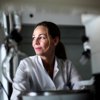Fritextsökning
Artiklar per år
Innehållstyper
-

Swedish team tests Alzheimer antibody for brain imaging
Recent breakthroughs in Alzheimer’s treatment have increased the need for precise diagnostics in the field. Researchers in Uppsala are working to develop improved methods for both identifying suitable patients and ensuring they receive the right therapy.
-

How the Nobel discovery is used in drug development
Regulatory T cells keep the immune system in check, a discovery now awarded the 2025 Nobel Prize in Physiology or Medicine. Qiang Pan Hammarström explains how this finding is being applied in today’s drug development, and what challenges remain.
-

Eli Lilly Recruits Leading Swedish Researcher Kaj Blennow to Head Alzheimer’s Project
Eli Lilly recruits Kaj Blennow, leading Alzheimer’s researcher, as VP of neuroscience biomarker development.
-

Billion-Dollar Deal Sends BioArctic Soaring
Swedish Alzheimer-focused company BioArctic has entered into a licensing collaboration with Novartis regarding a technology aimed at enhancing efficient drug delivery to the brain. The BioArctic stock surged significantly following the announcement.
-

BMS and venture capital giant form new company
The American pharmaceutical company Bristol Myers Squibb, together with the venture capital firm Bain Capital, is forming a new biotech company. The company will develop treatments for autoimmune diseases where there is currently a lack of effective therapies.
-

The race between new alzheimer’s drugs Kisunla and Leqembi heats up
Kisunla or Leqembi? The rivalry between Eli Lilly and Bioarctic is intensifying. Where one drug gains approval, the other falls behind. Here's a look at the markets where these competing treatments are currently available.
-

Mikael Kubista back with new venture after turbulent exit
Entrepreneur and researcher Mikael Kubista is starting a new company. Now he is also free to comment on the sequence of events that led to him losing ownership of his life's work – the company Tataa Biocenter. “Not only did they take our company away from us. They followed up by showering us with lawsuits,” he says.
-

FDA plans to replace animal testing with AI – “Paradigm shift”
The requirement for animal testing in drug development will be phased out and replaced by AI, according to an announcement by the FDA. The decision has been met with skepticism from the National Association for Biomedical Research.
-

Hjärnan i 3D – efter en videostund med Matrix
Forskare i USA har skapat det största och mest detaljerade kopplingsschemat hittills av en däggdjurshjärna genom att kartlägga celler i hjärnvävnaden hos en mus. Schemat visar även aktiviteten hos enskilda nervceller i stor skala.
-

Cancer researcher: “We can do better and reduce suffering”
Lund University researcher Catharina Hagerling is developing innovative methods to understand metastatic cancer, aiming to create more targeted treatments for patients with disseminated cancer.
-

Aqilion's licensing journey: From Merck partnership to new opportunities
Be extremely meticulous with your scientific data, but spend just as much time and effort on business development. That piece of advice comes from Aqilion's CEO Sarah Fredriksson and is directed at biotech companies aiming to find a good licensing partner.
-

The art of successful licensing – “A lot has to align”
Sharp research, strong data and a high level of innovation are all very good, but more than that is required to achieve the goal of many biotechnology companies: to succeed with a licensing deal.
-

Developing rapid diagnostics for sepsis – “Every hour counts”
Finding the right antibiotic in the right dose – with an ultra-fast analysis method. Gradientech's product solution is currently used in routine diagnostics at several hospitals in Europe – and the next target is the US market.
-

First preterm infants study – a vital step for Neola
After years of developing an advanced lung monitoring system, Neola Medical has received some delightful news: permission to start its first clinical study on preterm born infants.
-

AI detects tumor disease – via voice recording
A short voice recording along with facial images – both analyzed with an AI algorithm – can make it possible to detect the rare tumour disease acromegaly and initiate treatment at an early stage.
-

Life science trends 2025 – The economy
Upcoming patent expirations are driving pharmaceutical companies to acquire in 2025. In Sweden, we may be on our way to brighter times and fewer bankruptcies. Today´s part of the series with trend insights in life science for 2025 is about the economy.
-

GSK acquires oncology research company
GSK acquires the American biotechnology company Idrx for up to 1.15 billion dollars.
-

Bredd och spets på välbesökt life science-event
Hela kedjan inom läkemedelsframställning – från den tidiga forskningen till fyllning av vialer – var representerad när konferensen New Horizons in Biologics & Bioprocessing ägde rum på torsdagen.
-

“Research is always a lot of failures and a few successes”
Gene therapies open up fantastic possibilities, but they are also extremely expensive to produce. Genenova aims to change that and make the treatments accessible to more people. “Our overall ambition is to reduce costs a hundredfold”, says professor Johan Rockberg at KTH Royal Institute of Technology in Stockholm.
-

Xbrane enters licensing agreement with Indian generics giant
Swedish biosimilar developer Xbrane Biopharma and the Indian company Intas Pharmaceuticals have entered into a license and co-development agreement.
-

Roche’s Genentech terminates licencing deal with Norwegian biotech
Genentech is ending a license collaboration with Norwegian biotech Nykode Therapeutics regarding a clinical stage cancer vaccine program.
-

Her company is developing a new tablet form obesity drug
Obesity and diabetes are the primary targets of a new tablet treatment under development by Malmö-based Pila Pharma. The company’s ambition is to take on the billion-selling GLP1 analogues. ‘‘Basically, I expect all the beneficial effects that they have, but not the same side effect profile,’’ company founder Dorte X Gram said in an interview with Life Science Sweden.
-

An increasing number of people are falling ill with TBE – “Much more research is needed”
Tick-borne meningitis, or TBE, is an increasingly common disease in Sweden. Currently, there is a vaccine against the disease but no drugs. Researcher Anna Överby Wernstedt is studying the processes that occur in the brain during a TBE infection and hopes to contribute to developing a treatment.
-

“We should avoid surgery if we can”
Since February this year, she has been Scientific Director Life Science at the Karolinska Institutet. Life Science Sweden met Anna Martling for a talk about role models, surgery and Sweden’s strengths and weaknesses in medical research.